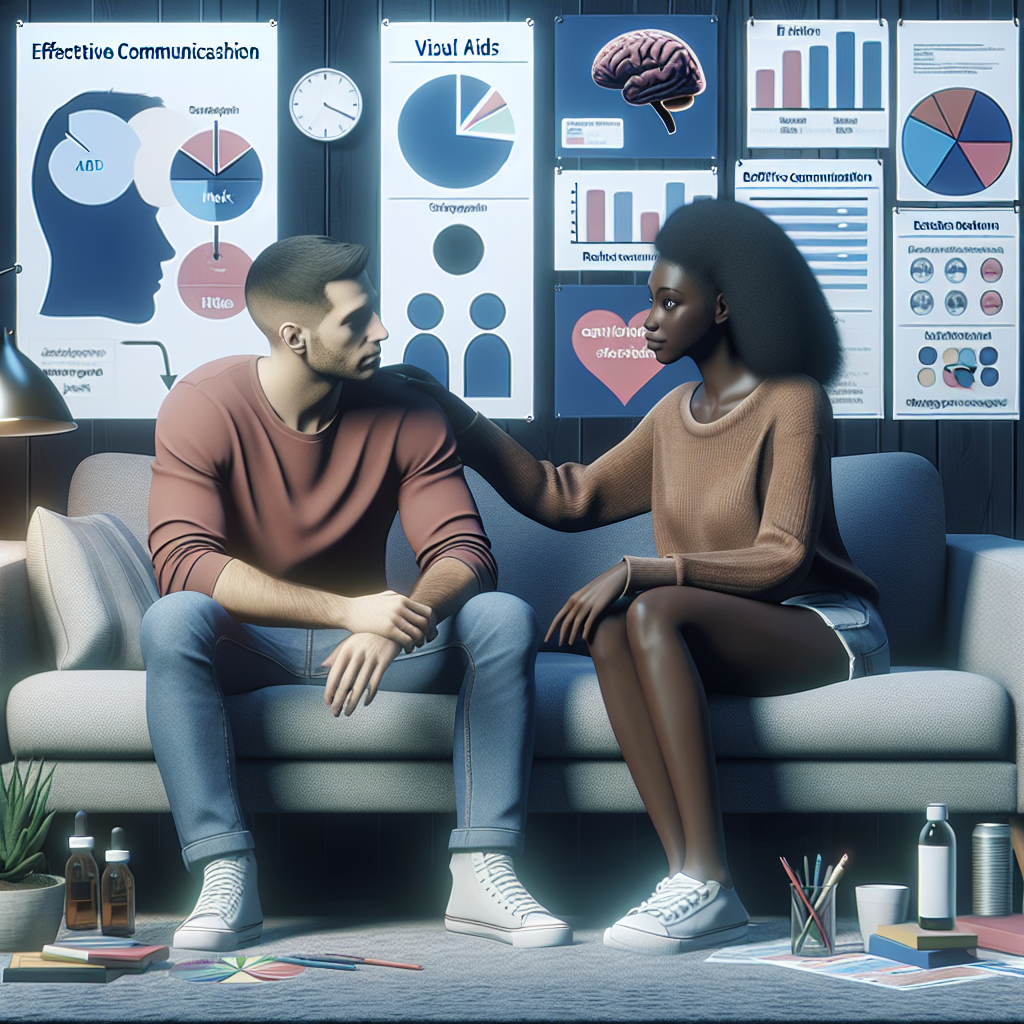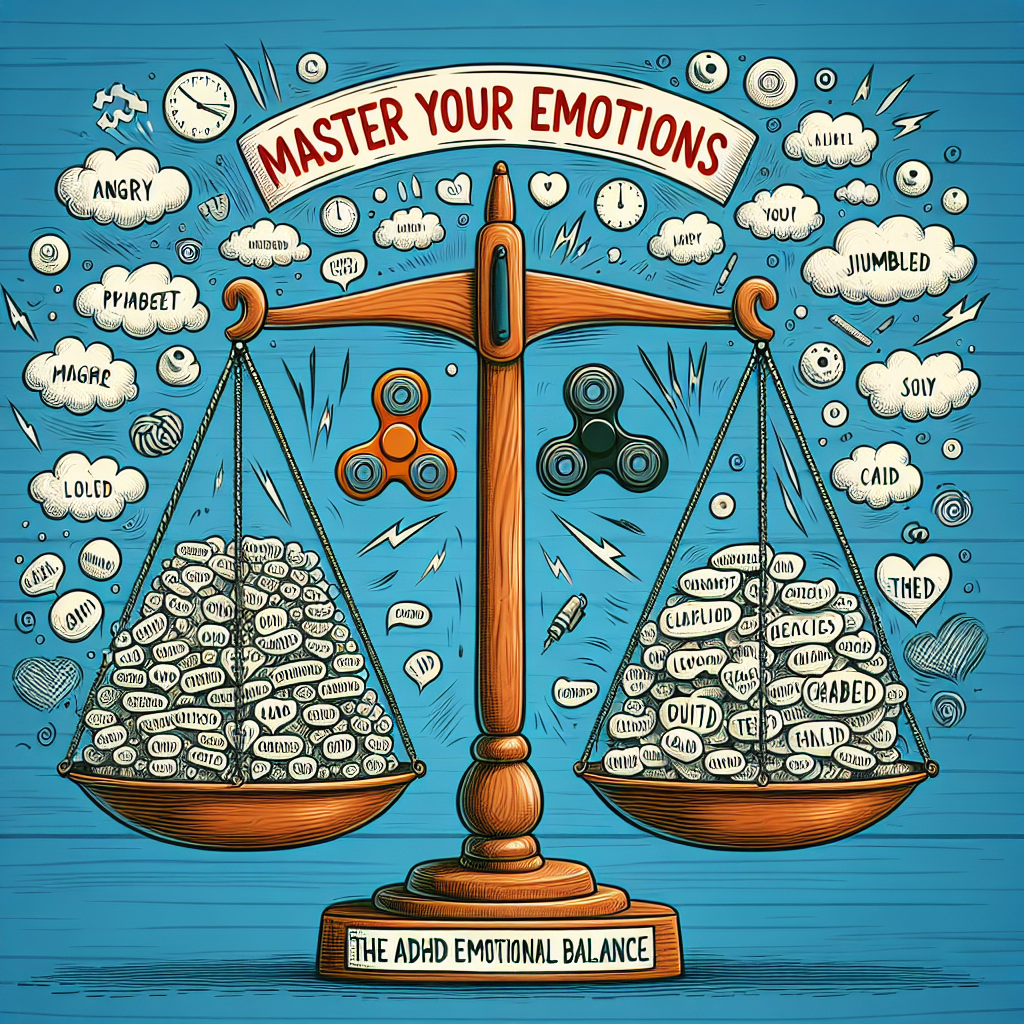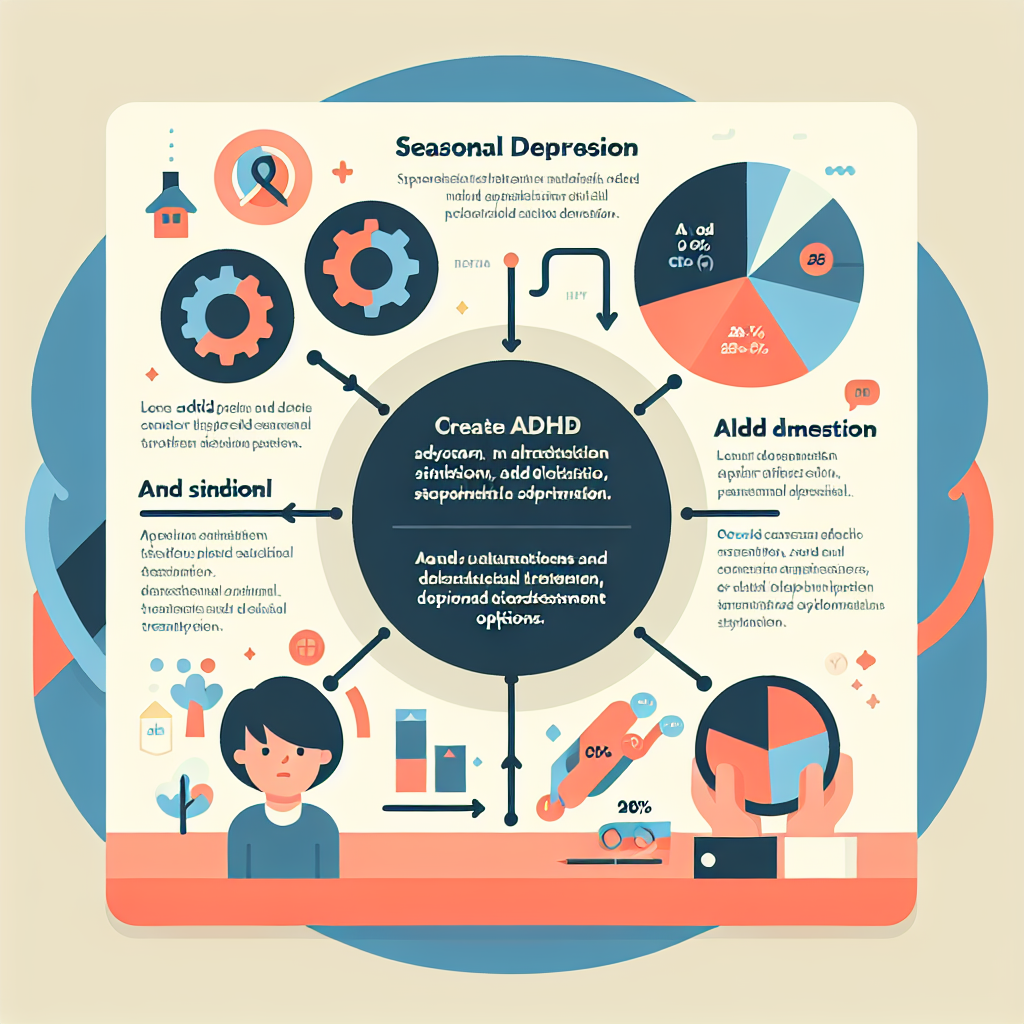
Dating with ADHD: A Complete Guide to Building Meaningful Relationships
Introduction
Welcome to the wild world of ADHD and dating, where love can feel like a rollercoaster ride thrilling, a little scary, and sometimes you just want to scream! If you’re navigating the ups and downs of ADHD relationships, you’re not alone. Whether you have ADHD yourself or are dating someone with it, understanding how this neurodevelopmental condition influences romantic connections is key to building meaningful relationships.
So, what’s the deal? ADHD can sprinkle a bit of chaos into your love life. Think of it as that friend who always shows up late to parties but brings the best snacks. Sure, they might forget your anniversary or leave the dishes undone, but they also bring spontaneity and excitement! This guide aims to help you make sense of those quirks while providing practical tips for managing ADHD in relationships.
From emotional regulation issues to communication barriers, we’ll explore the nitty-gritty challenges of dating with ADHD. But don’t worry; we won’t leave you hanging! We’ll arm you with strategies for coping, understanding your partner better, and ultimately fostering a loving environment that celebrates both your strengths and challenges.
Key Takeaway: Navigating romance with ADHD may require patience and empathy, but with the right tools and insights, you can build a healthy relationship that thrives on understanding and support!

Understanding ADHD and Dating
When it comes to ADHD and dating, it’s essential to understand how this condition can shape the dynamics of romantic relationships. ADHD, or Attention Deficit Hyperactivity Disorder, isn’t just about having a little extra energy or being easily distracted; it’s a complex neurodevelopmental condition that can influence how individuals connect with their partners.
First things first, let’s define what ADHD means in the context of relationships. Individuals with ADHD may experience challenges such as impulsivity, emotional dysregulation, and difficulties with focus. These traits can lead to unique dating dynamics that both partners need to navigate.
- Defining ADHD in the context of relationships: It’s not just about forgetting anniversaries (though that happens too). ADHD can impact attention spans, emotional responses, and even communication styles.
- How ADHD affects dating dynamics: Think of it like a rollercoaster ride. There are exhilarating highs and some stomach-churning lows as partners learn to manage distractions and emotional waves together.
- Common misconceptions about ADHD and love life: Many people think having ADHD means individuals are simply careless or uninterested in their partners. The truth is far more nuanced; understanding these misconceptions is crucial for building empathy.
Key Takeaway: Understanding how ADHD affects dating can help both partners cultivate patience and empathy, essential ingredients for any healthy relationship.
The impact of ADHD on dating life goes beyond just personal habits; it extends into the realm of emotional intimacy. For instance, those with ADHD may struggle with regulating their emotions during conflicts, leading to misunderstandings that can feel like navigating a minefield. But fear not! With the right strategies in place, couples can learn to communicate effectively and support each other through these challenges.
As we dive deeper into this guide on ADHD relationships, remember: every challenge presents an opportunity for growth. Understanding your partner’s unique experiences allows for building stronger connections that transcend typical dating hurdles.
The Challenges of Dating with ADHD
Dating with ADHD can sometimes feel like trying to juggle flaming torches while riding a unicycle thrilling, but definitely not without its risks! Whether you’re navigating the waters of ADHD relationships as an individual with ADHD or dating someone who has it, understanding the challenges can make all the difference.
Communication Barriers in ADHD Relationships
First up on our list of challenges is communication. Imagine trying to have a deep conversation in a crowded coffee shop while someone is blasting music from their phone. That’s what it can feel like when one partner has ADHD. Distractions are everywhere, and focus can be as elusive as a cat in a room full of rocking chairs. Misunderstandings can arise quickly, leading to frustration and feelings of disconnect.
Managing Impulsivity in Romantic Settings
Next, let’s talk about impulsivity. This isn’t just about making spontaneous plans for a weekend getaway (which can be fun); it’s also about saying things that might not come out quite right. Picture this: you’re at dinner and your ADHD partner suddenly blurts out a secret they promised to keep quiet. Oops! Learning to manage impulsivity is crucial for maintaining trust and harmony in relationships.
Emotional Regulation Issues in Relationships with ADHD
Lastly, emotional regulation can be a rollercoaster ride. Those with ADHD often experience intense emotions that may seem disproportionate to their circumstances. One minute you’re on cloud nine, and the next you’re navigating the depths of despair over something seemingly minor. This emotional ebb and flow can leave partners feeling confused or overwhelmed.
Key Takeaway: Understanding these challenges is the first step toward building healthy relationships with ADHD partners. By recognizing communication barriers, managing impulsivity, and addressing emotional regulation issues together, couples can create a supportive environment that fosters love and connection.

ADHD Dating Tips for Building Healthy Relationships
Diving into the world of ADHD and dating can feel like trying to juggle flaming torches while riding a unicycle challenging, but not impossible! Here are some tips to help you navigate the rollercoaster of ADHD relationships with grace and style.
Coping Strategies for Dating Someone with ADHD
First things first: understanding is key. When dating someone with ADHD, it’s important to remember that their brain operates differently. Here are some strategies to enhance your connection:
- Educate Yourself: Familiarize yourself with how ADHD affects emotional regulation and communication. This knowledge can help you avoid misunderstandings.
- Set Clear Expectations: Discuss your needs openly. If you need more attention during conversations, let them know. It’s not about being demanding; it’s about being clear.
- Use Visual Reminders: If your partner struggles with forgetfulness, consider using reminders or shared calendars to help keep track of important dates and events.
Maintaining Focus in Romantic Relationships for People with ADHD
Staying engaged during a date can be tricky when distractions abound. Here’s how to keep the spark alive:
- Create Distraction-Free Zones: Whether it’s a cozy corner of your favorite café or a quiet park, find places where both of you can focus on each other without interruptions.
- Engage in Shared Activities: Participate in activities that require teamwork (like cooking or playing games) to strengthen your bond while keeping both partners engaged.
- Acknowledge Attention Fluctuations: If one of you zones out during a conversation, don’t take it personally. Gently bring the focus back without guilt-tripping it’s all part of managing ADHD in relationships!
Patience and Empathy When Navigating Romance with ADHD
The heart of any successful relationship is patience and empathy, especially when dealing with the unique challenges posed by ADHD. Here’s how to cultivate these virtues:
- Practice Active Listening: Make an effort to truly listen when your partner talks. This helps them feel valued and understood, which is crucial for emotional support.
- Avoid Blame Games: If misunderstandings arise (and they will), approach them as a team rather than adversaries. Focus on solutions instead of assigning blame.
- Cultivate Emotional Awareness: Both partners should express their feelings regularly. Encourage open discussions about emotions related to ADHD challenges this builds trust and understanding.
Navigating Intimacy and Commitment Issues in ADHD Relationships
When it comes to ADHD and dating, intimacy can sometimes feel like trying to find a needle in a haystack. It’s not that the desire for closeness isn’t there; rather, the journey towards achieving that connection can be fraught with unique challenges.
Understanding Intimacy Challenges
Individuals with ADHD often experience difficulties with emotional regulation, which can lead to misunderstandings in intimate moments. Picture this: you’re trying to share a heartfelt moment, but your ADHD partner suddenly zones out or gets distracted by an unrelated thought. It’s not personal; it’s just the way their brain is wired. This can create feelings of rejection or frustration for both partners.
Addressing Commitment Issues
Commitment issues are another common hurdle in ADHD relationships. The impulsivity associated with ADHD might make some individuals hesitant to fully commit, fearing they might change their minds or feel trapped. Trust concerns often arise as well. A partner may worry about their ADHD companion’s ability to stay focused on the relationship or fear they might seek excitement elsewhere.
The Role of Emotional Support
Emotional support plays a pivotal role in navigating these intimacy and commitment challenges. Partners should engage in open dialogues about feelings and expectations, creating a safe space for vulnerability. This kind of communication fosters trust and helps mitigate fears related to commitment and intimacy.
- Practice Active Listening: When discussing feelings, ensure both partners feel heard and validated.
- Create Routines: Establishing rituals can help bring stability and predictability into the relationship, which is often comforting for individuals with ADHD.
- Acknowledge Triggers: Identifying what triggers emotional dysregulation can help both partners prepare for potential challenges ahead of time.
The path to intimacy may be rocky, but with the right strategies like maintaining focus during conversations and being mindful of each other’s needs couples can build stronger connections despite the challenges posed by ADHD.

Ultimately, navigating intimacy and commitment issues in relationships affected by ADHD requires effort from both partners. By fostering understanding and communication, couples can not only survive but thrive together!
Strategies for Supporting an ADHD Partner in a Relationship
Supporting a partner with ADHD is like being their co-pilot on a wild, sometimes turbulent journey. You’re not just along for the ride; you’re actively helping navigate the twists and turns of ADHD and dating. Here are some effective strategies to ensure your relationship thrives:
- Build a Supportive Environment: Create spaces that are calm and distraction-free. This can help your ADHD partner focus better, whether it’s during important conversations or while tackling daily tasks together.
- Coping with Rejection Sensitivity: Many individuals with ADHD experience heightened sensitivity to rejection. When discussing feelings or concerns, approach these topics gently and validate their emotions. Remember, it’s about building trust in your relationship dynamics with an ADHD partner.
- Overcome Misunderstandings: Miscommunication can easily occur in ADHD relationships due to impulsivity or forgetfulness. Establish clear communication channels like using shared calendars or reminders to minimize misunderstandings and keep both partners on the same page.
- Encourage Open Dialogue: Foster an environment where both partners feel safe sharing their thoughts and feelings. Regular check-ins can help address any issues before they escalate into larger conflicts.
- Focus on Strengths: Highlight your partner’s unique strengths and talents. Celebrating their successes can boost their self-esteem and reinforce positive behaviors in your relationship.
- Pace Yourself: Understand that managing ADHD in relationships requires patience and empathy. There will be good days and challenging ones acknowledge this ebb and flow as part of your journey together.
- Seek Professional Help if Needed: Sometimes, it’s beneficial to consult with a therapist who specializes in ADHD relationships. They can provide tailored strategies for overcoming specific challenges you may face as a couple.
Key Takeaway: Supporting a partner with ADHD means being proactive about understanding their needs, fostering open communication, and creating an environment that nurtures both partners’ emotional well-being.
The Importance of Communication in Relationships Affected by ADHD
When it comes to ADHD and dating, communication can often feel like trying to tune a radio in a crowded room lots of static and interference! But fret not, because effective communication is the secret sauce that can turn your relationship from a chaotic jam session into a harmonious duet.
Tips for Effective Communication
- Be Clear and Direct: When discussing feelings or needs, avoid beating around the bush. Being straightforward helps your ADHD partner understand exactly what you’re trying to convey.
- Use Visual Aids: Sometimes words get lost in translation. Consider using charts, lists, or even emojis to express feelings or plans. It’s like giving your partner a map instead of just verbal directions!
- Set Aside Time for Important Conversations: Choose moments free from distractions to talk about significant issues. This ensures that both partners are mentally present, reducing misunderstandings.
The Impact of Active Listening
Active listening can work wonders in an ADHD relationship. It’s not just about hearing words; it’s about understanding the emotions behind them. Here’s how you can cultivate this skill:
- Reflect Back: After your partner shares something, paraphrase what they said to show you’re engaged and understand their perspective.
- Avoid Interrupting: Give your partner the space to express themselves fully before jumping in with your thoughts. This shows respect and fosters trust.
- Create a Safe Space for Sharing: Encourage open dialogue by reassuring your partner that all feelings are valid and welcomed. This is crucial for emotional regulation in relationships with ADHD.

Conclusion
Dating with ADHD can feel like trying to juggle flaming torches while riding a unicycle exciting, but also a bit daunting! However, understanding the intricacies of ADHD and dating can transform these challenges into opportunities for growth and connection.
As we’ve explored, ADHD relationships come with their unique set of dynamics. From communication hurdles to emotional regulation issues, navigating romance with ADHD requires both partners to be equipped with patience and empathy. Remember, it’s not just about managing symptoms; it’s about enhancing your love life together!
If you’re dating someone with ADHD, consider these actionable strategies:
- Practice Active Listening: Truly hear what your partner is saying. This can help bridge communication gaps.
- Create Structure: Establish routines that provide predictability without feeling restrictive.
- Encourage Emotional Support: Be there for each other during challenging times; this builds trust and intimacy.
The impact of ADHD on dating life is profound but manageable. By fostering an environment of support and understanding, you can overcome the challenges of dating with ADHD and build a relationship that thrives. So go ahead, embrace the quirks, celebrate the victories, and remember that love in all its forms is worth the effort!


